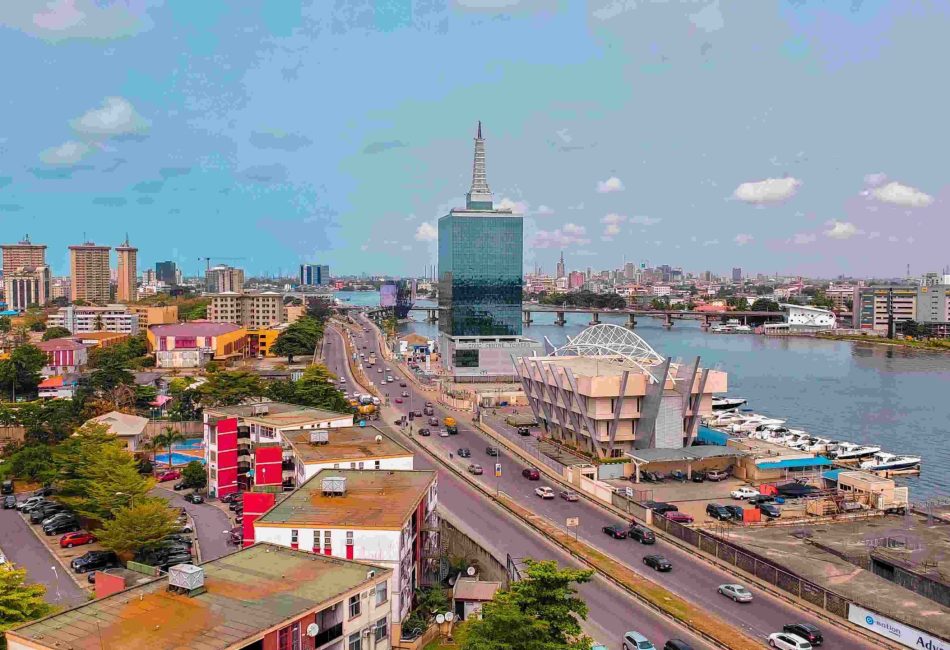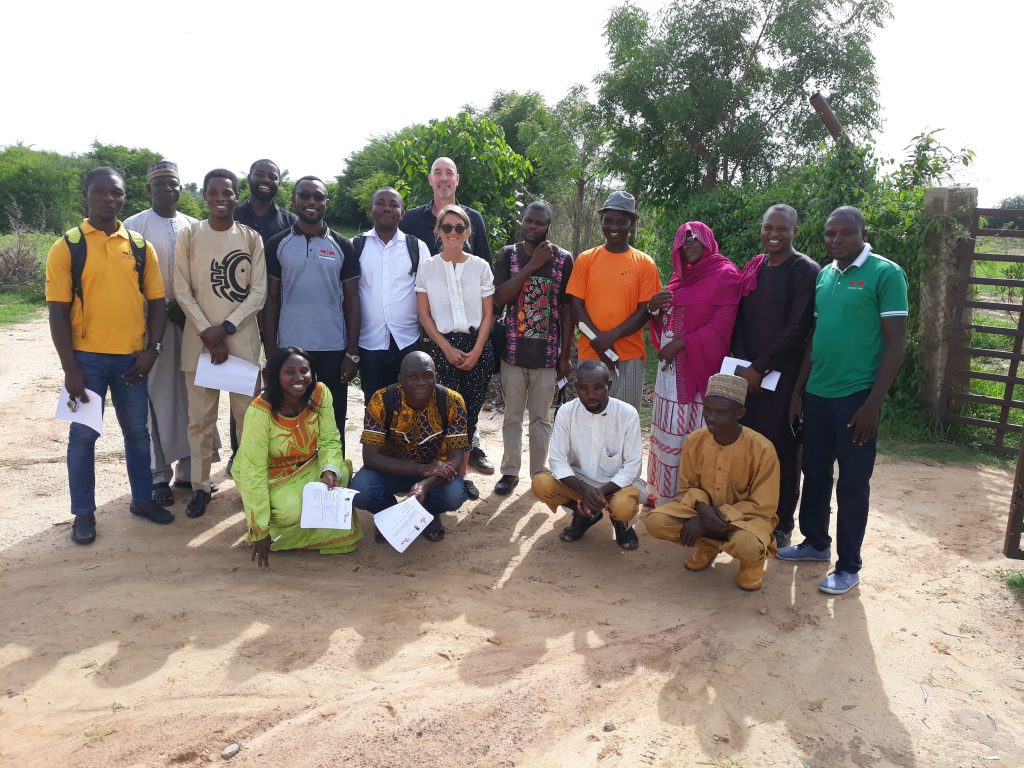
NABC and Nigeria
September 2023 Nigeria-Netherlands Business Hub: The NABC launched the Nigeria-Netherlands Business Hub (NNB Hub). The NNB Hub mirrors the services of the NABC in the Netherlands by fostering trade and investment partnerships between Nigerian and Dutch enterprises. The NNB Hub is led by the NABC Nigeria Office in Abuja.
March 2023 Incoming Agrofood Nigeria 2023: The NABC, in cooperation with the Government of the Kingdom of the Netherlands and East-West Trade & Consulting, organised a Holland Lounge at the Agrofood Lagos. At least 11 Dutch businesses and organisations participated in the fair, expressing enthusiasm in contributing to the themes of discussion, namely, protected horticulture sector transformation, new seed development programmes, and renewable solar energy solutions.
April 2022 Fact Finding Mission from Nigeria: The first post-covid trade mission from Africa to the Netherlands comprised a group of 30 policy makers and industry leaders from Nigeria with expertise in horticulture, circular economy, and energy transition.
February 2022 Virtual Scoping Mission to Nigeria (virtual): The Virtual Scoping Mission to Nigeria was part of the MATCH programme and showcased business and investment opportunities in Nigeria’s Agriculture, Tech, and Renewable Energy sector for Dutch and Italian companies.
2020-2022 MATCH Hiring African Talents: A 3-year pilot project that facilitates the circular mobility of highly skilled talent from Nigeria and Senegal, to fill labour shortages in 4 EU member states, namely Belgium, Italy, Luxembourg, and the Netherlands. MATCH is funded by the European Commission.
Investment climate
Despite the pandemic induced recession, Nigeria recovered its economic growth and remains the largest economy in Africa. Being the most populous country on the continent, Nigeria represents a significant consumer market for investors and traders. A very young country with 70% of the population under 30 years old, Nigeria offers a low-cost labour pool and is currently focused on the upskilling of its talented workforce. An abundance of natural resources strengthen Nigeria’s economic position, along with mostly duty-free trade with other member countries of the Economic Community of West African States (ECOWAS). Nigeria’s geographical location, 4 international airports and major seaports contribute to it being the economic hub of West Africa and connect it to global trade routes.
Nigeria’s investment landscape is marked by the potential of expanding markets, the presence of an ambitious youth workforce, and the availability of ample natural resources.
Dutch companies recognized this potential, which lead to the presence of large companies like Friesland, Campina and Philips in Nigeria, and to strong, established economic relations with the country. These ties are only growing, as reflected in recent developments such as Invest International’s Dutch Desk in Lagos. The Dutch government aims to assist Nigeria in its plan for economic diversity with a focus on agriculture, horticulture and renewable energy. Other high potential sectors include food security, agri-logistics, fast consumer goods, retail growth and the service sector (ICT, energy, power generation, distribution and pricing). Nigeria has also surpassed South Africa as the biggest e-commerce market of Africa, and has a prominent advertising and media market.
The growth of these sectors in combination with the high population growth rate, an abundance of natural resources and low-cost labour pool, makes that Nigeria offers ample opportunities for investors.
Investment Climate Key Indicators & Metrics:
| Measure | Year | Index/Rank |
| Corruption Perceptions Index | 2024 | 140 of 180 |
| Economic Freedom Index | 2025 | 127 of 184 |
| Global Innovation Index | 2025 | 105 of 139 |
| FDI Inflows (% of GDP) | 2024 | 0.6 % |

Challenges
Nigeria’s full market potential remains unrealised because of significant impediments such as corruption, inadequate power and transportation infrastructure, high energy costs, an inconsistent regulatory and legal environment, insecurity, a slow and ineffective bureaucracy and judicial system, and inadequate intellectual property rights protections and enforcement. Furthermore, the economic effects of COVID-19 remain as seen in high inflation, rising unemployment and insecurity. However, the government is committed to improving the business environment, moving up 24 places on the Ease of Doing Business ranking in the last 2 years, and has made pledges to improve security challenges, youth unemployment and lawbreaking.
Diplomatic relations
Netherlands
Embassy
The Netherlands is represented in Nigeria via its embassy in the Nigerian capital Abuja, led by H.E. Amb Bengt van Loosdrecht, who took office in 2024.
Consulate-General
The ambassadorial post is currently vacant; the mission is being managed by a Chargé d’Affaires ad interim as of 2025, namely Mrs. Ebere Nnenne Ibekaku.
Nigeria
Embassy
Nigeria is represented in the Netherlands via its embassy in The Hague, awaiting the new Ambassador.
More information: www.nigerianembassythehague.nl
Presence of Dutch companies
There are currently around 100 Dutch companies active in Nigeria.


